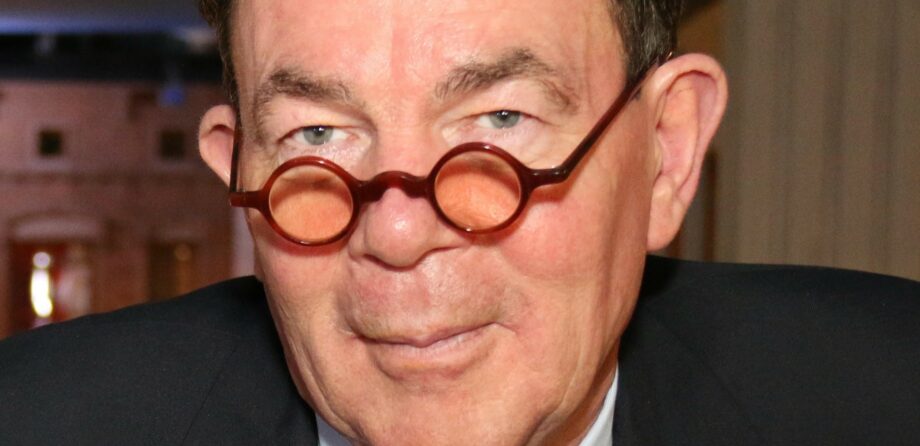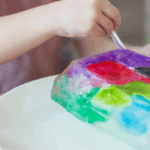
The importance of our early years: with Professor Dr Ger Graus OBE
Here we interview NDNA Conference 2025 keynote speaker Professor Dr Ger Graus OBE on the importance of our early years.
How would you describe your own childhood?
My mother was a very ‘hands-on’ parent, literally – the wooden spoon was her favourite tool. My father was an allrounder: wooden cloth hangers and belts were his tools, but he was also guilty of emotional abuse. So, I became a pleaser, hoping to shake off this guilt and to become loved. I still disappear into my shell, shut up shop, stop speaking. Anything is better than confrontation. I also became an observer, a listener, a judge of moments and circumstances, and a calculated-risk taker. A survivor.
How do you think have things changed since then?
In the greater scheme of things, I am not so sure that so much has changed over the years. It feels like, from a child’s perspective, the luck of the draw – Harry Potter’s “sorting hat”. It has meant, however, that I’ve tried to be a better parent – it became my aim in life. Professionally, knowing our children better is key. We never quite know what is in their baggage when they arrive at school in the morning. Often, children will come and tell us. Especially when it is about successes, achievements, and joyous experiences. Sometimes children will come and tell us about more difficult experiences, but often they may not tell us anything at all. They may however signal. It is then that our radars matter and that their trust in us comes to the fore.
Tell us about the person who had the most impact on you when you were growing up.
Across the railway line from my parents’ house, a five minute walk away, lived my favourite person: my grandad or “Opa” in Dutch – Opa van Peij. Peij was the village the other side of that railway line, where my grandad’s house was.
My early education, as opposed to my schooling, consisted of, without knowing it, learning through play, and learning through experiences. Much of this learning in the wild came in the company of my grandad. From walking through the fields to watch the farmers harvest, to learning about gardening and listening to his stories, as well as, at a very young age, watching a pig being slaughtered and as a result peeing my pants. Opa was the epitome of fun, happiness, safety, and warmth, juxtaposed with the coldness of my parents.
How did you first become interested in children’s education and, in particular, children’s early years education?
Everything changes when I came to know my secondary school German teacher, Meester Beurskens, at the Bisschoppelijk College Echt. Four years into secondary school and for the first time since primary school, a teacher was seeing me as an individual, and as someone who had the potential to do great things. He reinforced to me the power a good teacher has to shape the future of a child – not referring to the qualifications they have, but the quality of their attitudes towards you and their want for you to succeed.
When grown up, a secondary school teacher, I quickly began to realise that all the issues and challenges, joys and successes our children experience stem from earlier on in their lives. It didn’t take long to dawn that the starting point was age zero.
What do you feel is the best approach to supporting children’s early development?
A child’s education is an impact partnership. “Every child is everyone’s responsibility” is my wife’s mantra. She is the headteacher at Arbourthorne Community Primary School in Sheffield. Good nurseries, schools and universities play a critical role in helping children learn how to become effective, good citizens, parents, workers, and custodians of the planet. More than ever, we need to enable and empower good nurseries, schools and universities.
What is the most important aspect of a child’s life that has to be right for the best outcome?
Happiness. When I was a little boy, my grandad would often talk to me about the importance of happiness. Time after time, my grandad would cement the importance of happiness by answering many a question or statement from me with, “Es doe mer gelökkig bös” – as long as you are happy.
If you could change one thing across the world which would improve children’s futures, what would it be?
There are many things. Equity, poverty, love. But I believe that more of us need to be part of Antoine de Saint-Exupéry’s “few”: “All grown-ups were once children, but only few of them remember it”. Then, only then, will we place the child at the centre of what we do and declare ourselves accountable to them.
More about Professor Dr Ger Graus OBE
Professor Dr Ger Graus OBE is a renowned figure in the field of education – once described as “Jean-Jacques Rousseau meets Willy Wonka”. He was the first Global Director of Education at KidZania and the founding CEO of the Children’s University. In 2019, Ger became a Visiting Professor at the National Research University in Moscow, Russia. He is also a Professor of Practice at the University of Cumbria, United Kingdom, and a Member of the PhD Advisory Council at the University of Modena and Reggio Emilia, Italy. Ger is a frequent keynote speaker at some of the world’s leading education conferences. Driven by his famous mantra that “Children can only aspire to what they know exists”, Ger champions the cause of equity, progress, purpose, creativity, and innovation in children’s learning.
Read more from his professional autobiography Through a Different Lens – Lessons from a Life in Education.
Similar Articles
Top tips: Supporting your team’s well-being

Early years activity: Frozen balloon explorers


